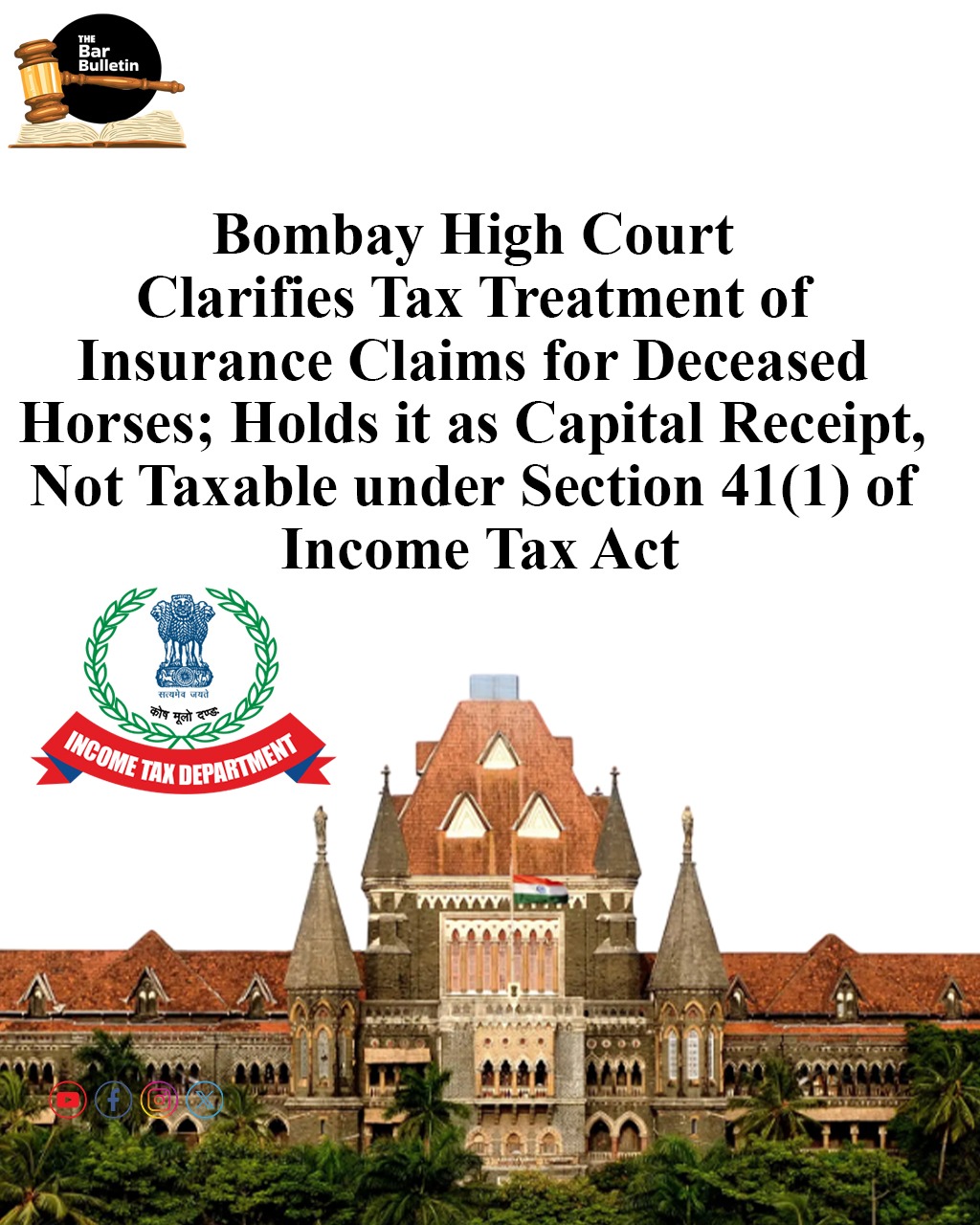While maintaining the interpretation of Entry 81 Schedule VII to the Constitution which says “Taxes on Income”, the Bombay High Court yesterday clarified that if a capital is lost on account of death of a horse, any amount received by the studfarm towards insurance claim of such loss would obviously be on capital account. Resultantly, the said insurance claim being capital receipts were not taxable as ‘profits’ u/s 41(1) of the Income Tax Act, 1961.
Interestingly, the Division Bench comprising Chief Justice Alok Aradhe and Justice Sandeep V. Marne had been posed with an issue as to whether insurance receipt consequent to death of a horse would amount to ‘transfer’ within the meaning of Section 45 of the 1961 Act. Referring to the decision in the case of Vania Silk Mills (P.) Ltd. vs. CIT [(1991) 191 ITR 647 (SC)], where the Supreme Court has ruled that “extinguishment of right in the asset on account of extinguishment of the asset itself is not a transfer of the right but its destruction”, the Bench reiterated that the money received towards insurance claim on account of damage to or destruction of capital asset cannot be treated as transfer of capital assets so as to attract tax under the provisions of Section 45(1) of the 1961 Act.
In a nutshell, the appellant engaged in the business of breeding and selling racehorses since 1967, claimed insurance upon the death of its horses, and the same was sanctioned too. The problem arose only when the appellant added losses on the death of mares while computing its total income. The said action of the appellant did not go well with the I-T Department, as they were of the view that loss on the death of an animal is an allowable deduction u/s 36(1)(vi) of the 1961 Act. The Department also characterised the insurance benefit in the hands of the appellant as deemed income, and imposed tax on the same u/s 41(1) of the 1961 Act.
The appellant’s claim that an insurance claim paid upon the destruction of property is a capital receipt, not chargeable to tax, was opposed by the Department by arguing that once the appellant had debited the loss in its books on account of the death of its horses, then the receipts from the Insurance company would be treated as only deemed profit chargeable to tax u/s 41 of the 1961 Act.
The High Court found that the Department after realising that they cannot tax the insurance receipts u/s 45 of the 1961 Act, had shifted such income of the appellant from the head ‘capital gains’ to the head ‘profits and gains of business or profession’ for the purpose of applicability of Section 41(1). The Court therefore deprecates the action of the Department in imposing tax on income forming part of particular head and governed by particular section, by shifting the same under another head for the purpose of applicability of another section of the 1961 Act.
Having realized that the insurance receipt cannot be taxed as capital gain u/s 45, the action of the AO in taking recourse to Section 41(1) for the purpose of bringing the insurance receipt to tax, is questionable, when the Revenue itself has treated the horses as ‘capital assets’, added the Court.
In case of the two horses, for whom insurance claim is received, the capital cost in the books of accounts got replaced by the amount claimed under insurance claim and there was no question of seeking any deduction in income u/s 36(1)(vi) of the 1961 Act. Therefore, the Court concluded that insurance claim received towards death of the two horses could not be charged to tax u/s 41(1). Accordingly, the Court granted relief to the appellant.
Appearances:
Appellant: Advocate P.J. Pardiwalla
Respondent: Advocate Akhileshwar Sharma
![]()



